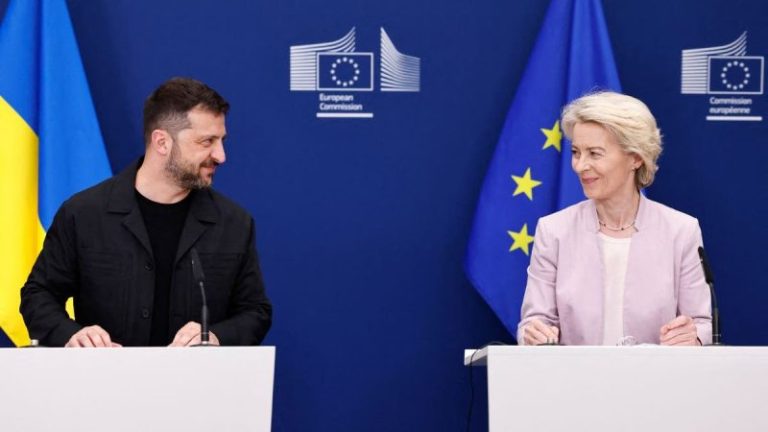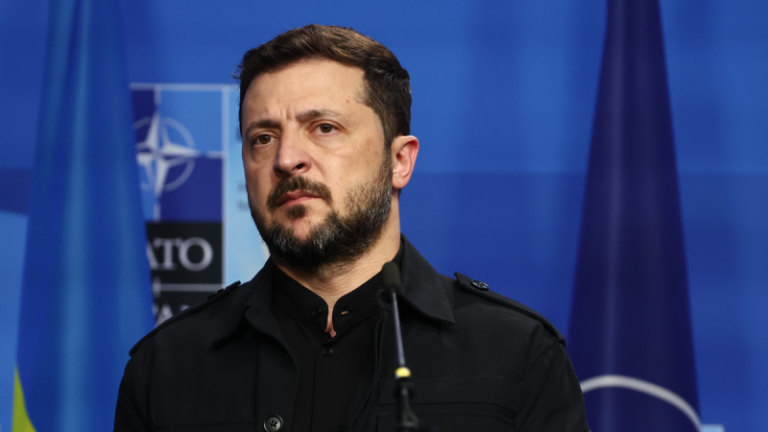To paraphrase President Ronald Reagan, I think it’s time to ask: do you honestly feel better off today than you were at the beginning of the year?
In the past few weeks, President Donald Trump cheated at golf in Scotland on the taxpayer dime, announced a $200 million White House ballroom to host his rich donors, finalized a Qatari grift for his new Air Force One, waddled around the White House roof like a lost old man, and talked about how his old pedophile pal Jeffrey Epstein ‘stole’ a 16-year-old spa worker from Mar-a-Lago.
How much of that time did he spend actually focusing on the economy?
On jobs?
On bringing prices down, like he promised to do on day one?
Look, for years, the Trump Industrial Complex has been ruthlessly effective at painting Democrats every which way. I’ll admit, we didn’t do nearly enough to define ourselves before allowing them to define us. In fact, we did some research the other month and found the number one word associated with the Democratic Party was ‘weak.’
Now, I know that’s not the case. We’re the party of the working class, the small business, the farmer. Before leading the DNC, I headed up the Minnesota DFL – and you know what DFL stands for? Democratic-Farmer-Labor.
We’re the party that says, we don’t want to dismantle the VA or fire vets from their jobs, we want the men and women who put their lives on the line for our freedom to be able to find an affordable home or get care after they’ve served. We’re the party that promises, if you’re going to work your butt off for decades, then you shouldn’t have to worry about some snake oil salesman blowing up your Social Security. And now it seems we’re the only party that still believes the Constitution matters.
But it doesn’t matter what I know. It matters what people think. Between now and the midterm elections, our job – my job – is to make the case why your life would be better with Democrats in charge.
Now, you know what else Trump Republicans in D.C. are ruthlessly effective at?
Ruining the country.
Trump thinks the best way to show leadership is through bumper-sticker politics. But while you read his catchy slogans, he drives the car into oncoming traffic.
When he wants to appear tough, he sends the military into U.S. cities.
When he wants to make the economy seem better than it is, he fires economists and pumps fake trade deals.
When he wants to avoid his friendship with the most notorious sex criminal in modern history, he whips up BS scandals about Democrats.
Meanwhile, the latest labor report shows the past three months as the weakest stretch for jobs since COVID-19. America’s small business backbone is being ground into dust. Farmers are shutting down operations. Families are paying more, getting less, and sitting up at night wondering if their job will be there for them next week.
It’s almost as though, since coming into power, Trump and his allies in Congress have done everything possible to stop America from being great.
They caused unnecessary economic tariff chaos and then, with their debt-ballooning budget, followed it up by ripping healthcare and food from those who need basic lifelines to make it through tough times. All to give lucrative tax windfalls to the most extreme elites. The richest of the richest of the rich.
They attacked construction jobs, rural hospitals and nursing homes. They’re raising energy prices, grocery prices, clothing prices, car prices – the list goes on.
And Trump said foreign countries would eat the tariff costs. Nope. You’re eating the costs. No press conference or talking point or billionaire-controlled AI bot can convince your bank account of something that’s not true.
Trump thinks the best way to show leadership is through bumper-sticker politics. But while you read his catchy slogans, he drives the car into oncoming traffic.
The thing is, we all want America to be great.
But Democrats measure greatness by how many people have healthcare, how many families can find childcare that doesn’t break the bank, how many young couples can get keys to their first home, how many people with amazing ideas can turn those ideas into businesses.
Let’s not forget, the Republican Party some of us still remember did big things. We didn’t always agree, and we fought bitterly at times, but at least they tried. They actually invested in stuff that matters to people, like building the interstate highway system, creating NASA, and knocking out polio. Hell, even President Richard Nixon created the EPA to make sure air is clean and water is safe. Now, the Trump administration is greenlighting forever chemicals in your water. These are the people who ran on ‘Make America Healthy Again.’
Nobody should feel like they have to cover for Trump anymore. You deserve better. Plus, he already has a cartoon villain squad covering up for him every day with the Epstein files.
If you’re disillusioned by politics, think that this government is captured by the ultra-elites, or believe the system is broken and screwing you over – you’re right.
If you’re sick of the status quo, looking to break from the establishment, and end rigged games that protect powerful people, then I’m going to break it to you – you should vote Democrat.
As Democrats, our job isn’t to help Jeff Bezos pay for his $50 million European wedding. It’s to make sure the economy allows you to afford your own wedding, or raise a kid, or get care for aging relatives, or pay the summer A/C bill.
Don’t you wish Republicans in Washington cared about those things too?
They attacked construction jobs, rural hospitals and nursing homes. They’re raising energy prices, grocery prices, clothing prices, car prices – the list goes on.
Look, it’s a damn shame that some people don’t feel like Democrats fight for them anymore.
Here’s my admission: we can’t say to voters that we’re going to fight for them, fight for their families, fight for working people, and then when given the power, do nothing with it.
That has to change. It is changing.
I like to say you don’t need a miracle to grow a spine. You just need a willingness to do what’s right.
I know politics these days feels like a sport. Good guys and bad guys. Winners and losers.
But whether or not families can make it in this country isn’t a sport.
It’s the most serious thing in the world.
Trump doesn’t take that responsibility seriously. I promise, Democrats do.
This post appeared first on FOX NEWS










